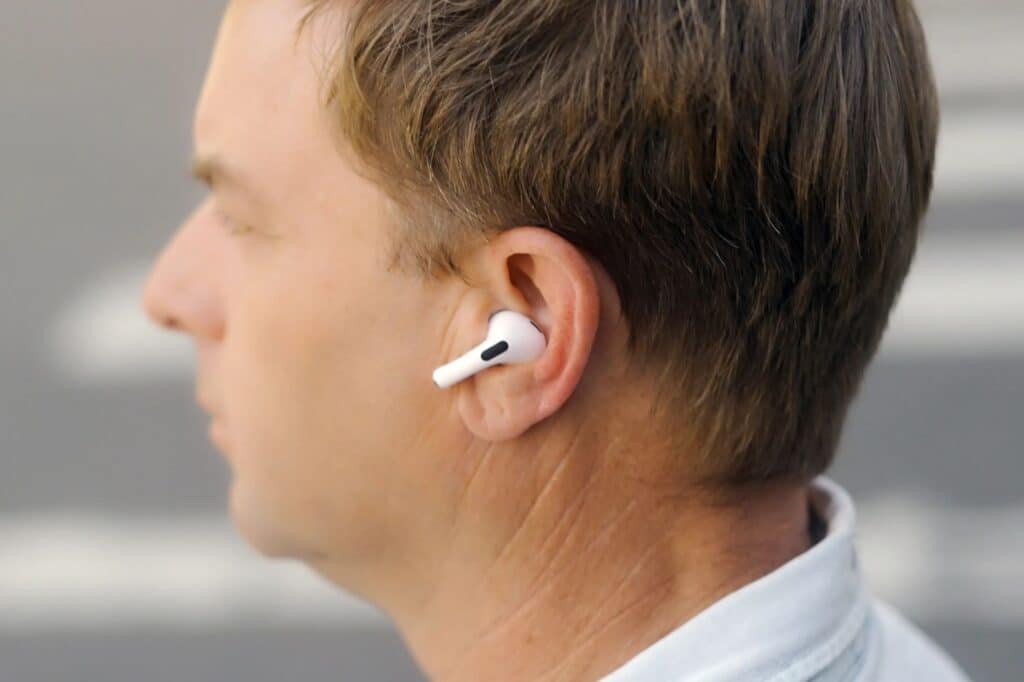Apple’s recent announcement of the AirPods Pro 2 has created a bit of a buzz in the hearing loss community. As a hearing care provider, I applaud Apple’s spotlight on hearing health, which is bringing important conversations about hearing care into the mainstream.
These earbuds boast a host of new features, including improved overall sound quality, adaptive transparency, and a new charging case with Find My integration. But the question on many minds is: will they be a significant improvement for those with hearing loss?
Key Features and Potential Benefits:
- Adaptive Transparency: This feature is designed to automatically adjust the volume and clarity of ambient sounds, making it easier to hear and understand conversations in noisy environments. For those with hearing loss, this could be a game-changer, as it can help to reduce background noise and improve speech intelligibility.
- Improved Sound Quality: The AirPods Pro 2 features a new H2 chip, which promises to deliver better sound quality and more accurate audio processing. This could help to enhance the clarity and detail of sounds.
- Quick Hearing Screening: The ability to do a quick hearing check allows people to assess if they should have a more thorough examination by a hearing care provider.

Will They Work for My Hearing Loss?
While the AirPods Pro 2 certainly offer a number of features that could be beneficial for those with mild hearing loss, it’s important to note a few cautions, and the importance of a full comprehensive hearing evaluation by a hearing care provider.
- Customization: Every physical ear, and every hearing loss is unique to each individual; your solution should be just as personalized to ensure the best quality of both fit and sound. Being evaluated and treated by a hearing care professional ensures you are getting that customization for maximum effectiveness.
- Wax Accumulation: The first thing a hearing care professional will do is a visual inspection of the ear to look for excess wax or any medical red flags. Without this step, you may assume you have a hearing loss based on the Apple app’s hearing screening, but actually be turning up the volume unnecessarily.
- Severity of Hearing Loss: As an OTC (over-the-counter) product, Apple’s new hearing function is designed for people with mild to moderate hearing loss. They are not a substitute for prescription hearing aids. This means that for a large number of people, they will not give an appropriate amount of assistance to match their hearing needs.
- Care: As with any OTC product, the buyer needs to be comfortable having minimal support with the product. If you prioritize peace of mind and a professional verifying you are hearing at your very best, an OTC like the AirPod Pro is probably not the right fit for you.
- Battery life: While advertised as offering 30 hours of battery life with the charger, the AirPods Pro 2 have a 5-6 hour battery life, and you can charge them 5 times in the charging case without needing to plug it in. For individuals who depend on their hearing aids for communication, having to remove them multiple times a day for recharging is a large limitation of this device.
- Comfort and Customization: Depending on the physiology of your ear, you may not be able to comfortably wear the AirPods all day. Unlike prescription hearing aids that can be customized to every individual wearer, AirPods come in one design only.
- Social Stigma: Wearing AirPods in your ears during a meeting or conversation can lead to the perception that you are not paying attention. This could be an adjustment in the workplace or with friends and family.
- Vanity: For some individuals, wearing AirPods may not be aesthetically appealing in certain situations.
Conclusion
The AirPods Pro 2 are creating some public interest around hearing health, which is fantastic. As a first entry into hearing care for someone with mild hearing loss, they can be a valuable option. However, it’s crucial to evaluate your individual needs, consult with a hearing care professional, and consider the limitations of these earbuds before making a purchase.
